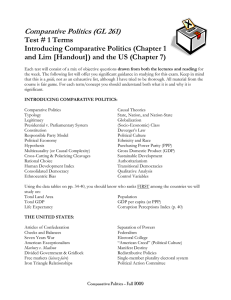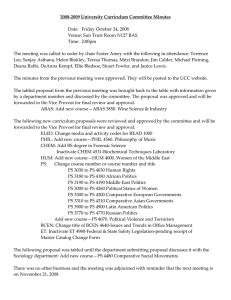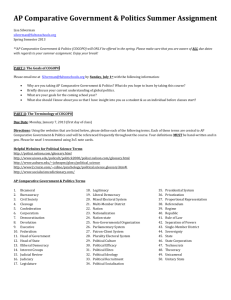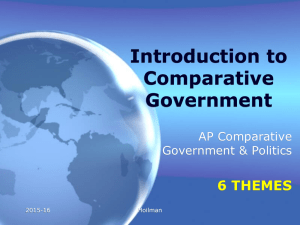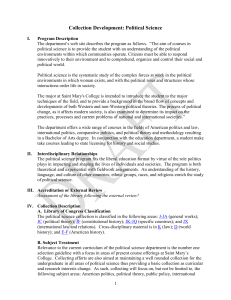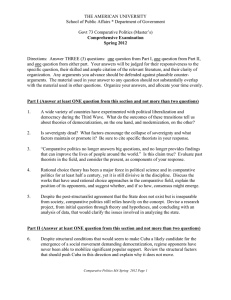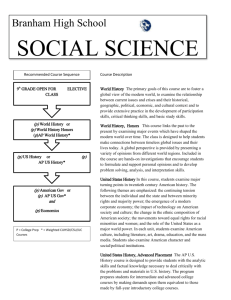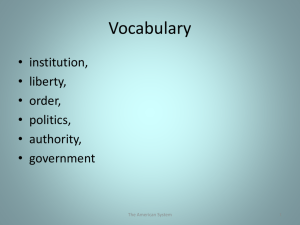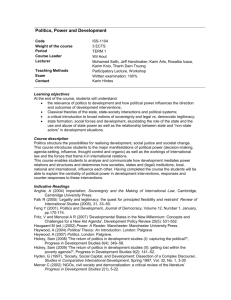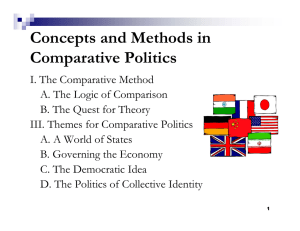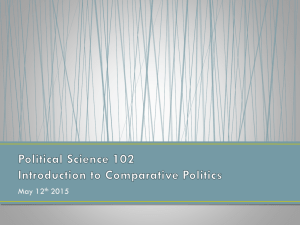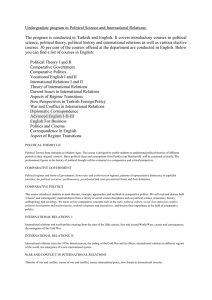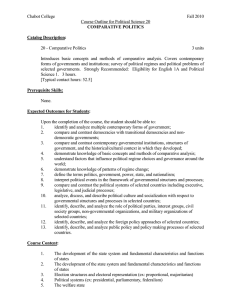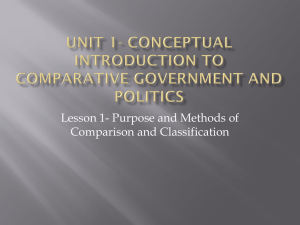In order to get a head start for the next school year, you must
advertisement
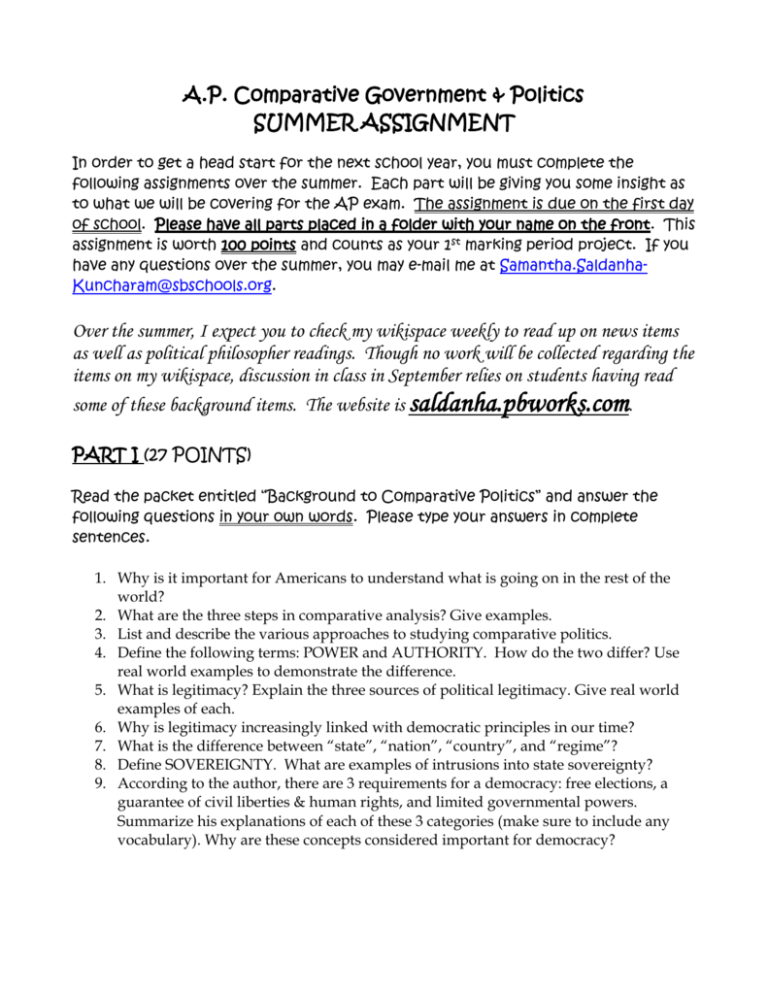
A.P. Comparative Government & Politics SUMMER ASSIGNMENT In order to get a head start for the next school year, you must complete the following assignments over the summer. Each part will be giving you some insight as to what we will be covering for the AP exam. The assignment is due on the first day of school. Please have all parts placed in a folder with your name on the front. This assignment is worth 100 points and counts as your 1st marking period project. If you have any questions over the summer, you may e-mail me at Samantha.SaldanhaKuncharam@sbschools.org. Over the summer, I expect you to check my wikispace weekly to read up on news items as well as political philosopher readings. Though no work will be collected regarding the items on my wikispace, discussion in class in September relies on students having read some of these background items. The website is saldanha.pbworks.com. PART I (27 POINTS) Read the packet entitled “Background to Comparative Politics” and answer the following questions in your own words. Please type your answers in complete sentences. 1. Why is it important for Americans to understand what is going on in the rest of the world? 2. What are the three steps in comparative analysis? Give examples. 3. List and describe the various approaches to studying comparative politics. 4. Define the following terms: POWER and AUTHORITY. How do the two differ? Use real world examples to demonstrate the difference. 5. What is legitimacy? Explain the three sources of political legitimacy. Give real world examples of each. 6. Why is legitimacy increasingly linked with democratic principles in our time? 7. What is the difference between “state”, “nation”, “country”, and “regime”? 8. Define SOVEREIGNTY. What are examples of intrusions into state sovereignty? 9. According to the author, there are 3 requirements for a democracy: free elections, a guarantee of civil liberties & human rights, and limited governmental powers. Summarize his explanations of each of these 3 categories (make sure to include any vocabulary). Why are these concepts considered important for democracy? PART II (38 POINTS) Collect three (3) current events articles pertaining to the governments and politics of each of the six (6) countries we will be studying next year: United Kingdom, Russia, China, Nigeria, Mexico, and Iran. The articles should show that you have been following the news throughout the summer. The dates should range from June to September. Group the articles by country and in chronological order. Also include one (1) article about ONLY ONE of the following world organizations: the United Nations (UN), the European Union (EU), the World Bank, the International Monetary Fund (IMF), or the World Trade Organization (WTO). Print out and put these articles in a folder. To save paper, you may print articles front to back. Summarize the articles in writing (typed). Within the summaries, explain how this article relates to the topic of government and politics. Why did you choose this article to include? What is its significance to the country? Underline the portions of the article relating to government and politics. Give complete bibliographic information for each article at the bottom of the summary sheet. You may use any legitimate news source in print or on the Internet. Examples include The Economist, The New York Times, The Washington Post, The Christian Science Monitor, Time, Newsweek, The Times of London (www.the-times.co.uk), or The Wall Street Journal. Some Internet sources are www.cnn.com, www.allpolitics.com, www.city.net/countries/(include country name here w/o parenthesis), or www.bbc.co.uk. PART III (35 POINTS) A vocabulary list of political terms and concepts is attached. Follow the exact order as presented on the list. You must type a list of the words and define them. When possible, include an example. Remember to define the terms as they apply to political science. During the school year, you will apply these terms to the countries we study in class. It is important you know the meaning of these terms in order to understand comparative politics, especially since they will be referred to often in discussion and lectures. You may use any number of sources to define these terms but be wary. Make sure if you use the internet that more than one source corroborates the definition. University websites are often the best places to get definitions (they usually end in “.edu”). The following websites are reliable sources. http://polisci.nelson.com/glossary.html http://www.auburn.edu/~johnspm/gloss/ http://www.socialsciencedictionary.com/ http://www.indiana.edu/~ipe/glossary.html http://highered.mcgraw-hill.com/sites/007248179x/student_view0/glossary.html http://ocw.tufts.edu/data/58/727216.pdf

![Comparative Politics (GS 161) Test # 1 Terms and Lim [Handout])](http://s2.studylib.net/store/data/011707684_1-fe811697b4f1a95514b5eff13fe07ae7-300x300.png)
